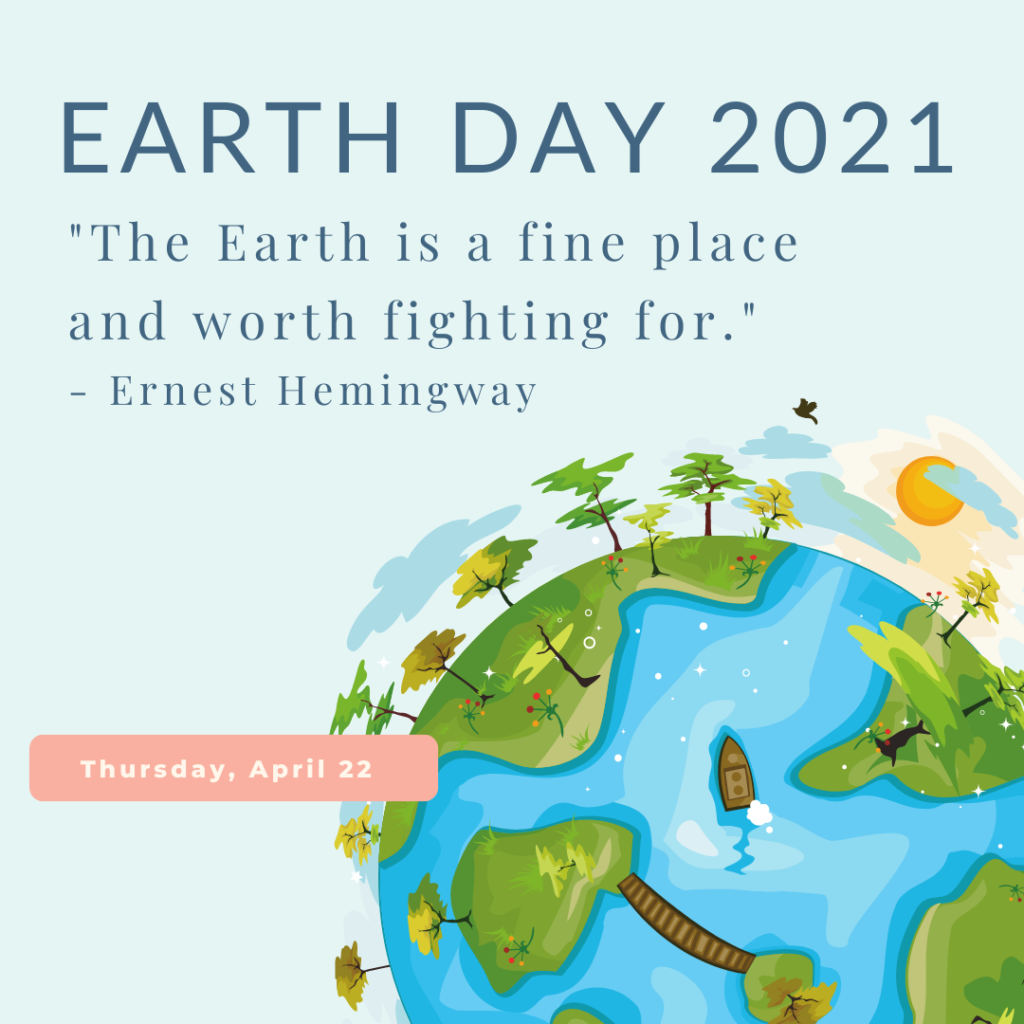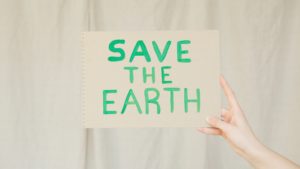What’s Earth Day? Take the time to tackle food justice, environmental justice, and more.

Earth Day is a time when global citizens take action to preserve our planet. Meaningful issues like climate change, science and education, people and communities, conservation and restoration, plastic and pollution are some of the areas we all can get involved (EarthDay.org, 2021).
What does Earth Day mean to me?
Environmental, food justice, and animal welfare are top of mind. Livestock farming has contributed to deforestation around the world. Setting intentional fires contributes to global warming and negatively impacts the indigenous cultures relying on these forest ecosystems to survive. Trees also remove existing carbon dioxide from the atmosphere and provide thriving environments for other animal species (EarthDay.org, 2021).
Once I learned about the amount of feed crop it takes to produce one pound of beef I decided to decrease meat from my diet and increase my fruit and vegetable intake. Not only am I adding more nutrients, but I also hope to reduce my carbon footprint.
How does Environmental Justice relate to Earth Day?
Research studies are showing negative health impacts to community members that live close to livestock farms. These farms emit high amounts of ammonia and increase chronic disease levels in those community members through air transmission. The increased levels of manure create a hazardous environment and impact respiratory and mental health (Eijrond et al., 2019; Smit & Heederik, 2017).
Did you know that Environmental Justice stemmed from the Civil Rights Movement of the 1960s?
It primarily started from the people of color communities to raise awareness around public health concerns impacting communities and families.
“Environmental justice is the fair treatment and meaningful involvement of all people regardless of race, color, national origin, or income, with respect to the development, implementation, and enforcement of environmental laws, regulations, and policies” (USEPA, 2021).
Dr. Robert Bullard, also known as the Father of Environmental Justice, has been campaigning against environmental racism. His advocacy started when he found increased environmental hazard levels in black communities compared to white areas.
His work and the efforts of others are helping to address injustices for those in marginalized and minority communities.
Sustainable livestock systems?
 Increasing food industrialization can negatively increase globalization’s effects on the environment. Producing more food is not the answer to solving food issues (Barnhill & Doggett, 2018). There are efforts underway and UN sustainable development goals set for 2030 to address climate, environmental, and inequality-related goals. If the goals set are achieved, future generations will benefit from inclusive, sustainable economic growth that is equitable for all livelihoods, benefit from improved health and nutrition intake, and experience sustainable environmental practices (Varijakshapanicker et al., 2019).
Increasing food industrialization can negatively increase globalization’s effects on the environment. Producing more food is not the answer to solving food issues (Barnhill & Doggett, 2018). There are efforts underway and UN sustainable development goals set for 2030 to address climate, environmental, and inequality-related goals. If the goals set are achieved, future generations will benefit from inclusive, sustainable economic growth that is equitable for all livelihoods, benefit from improved health and nutrition intake, and experience sustainable environmental practices (Varijakshapanicker et al., 2019).
We can all support Earth Day, and every day, by understanding where our food is grown. You can make a difference in your food purchasing decisions and hand future generations a healthier and thriving Earth.
“There are no passengers on Spaceship Earth. We are all crew.”
– Marshall McLuhan
Care about food-related issues, check out “What is a food desert?“ post.
Happy Earth Day!
With gratitude,
Tara
References:
Barnhill, A., & Doggett, T. (2018). Food ethics I: Food production and food justice. Philosophy Compass, 13(3). https://doi.org/10.1111/phc3.12479
Dr. Robert Bullard. Retrieved from https://drrobertbullard.com/
EarthDay.org. (2021).
Eijrond, V., Claassen, L., Joke van, d. G., & Timmermans, D. (2019). Intensive livestock farming and residential health: Experts’ views. International Journal of Environmental Research and Public Health, 16(19)
Smit, L. A. M., & Heederik, D. (2017). Impacts of intensive livestock production on human health in densely populated regions. GeoHealth, 1(7), 272-277.
UN News. (2021, March 4). Wasting food just feeds climate change, new UN environment report warns. Retrieved from https://news.un.org/en/story/2021/03/1086402#:~:text=Produced%20by%20the%20UN%20Environment,all%20food%20is%20just%20dumped.
United States Environmental Protection Agency (2021). Environmental justice. Retrieved from https://www.epa.gov/environmentaljustice
Varijakshapanicker, P., Mcjune, S., Miller, L., Hendrickx, S., Balehegn, M., Eahl, G. E., Adesogan, A. T. (2019). Sustainable livestock systems to improve human health, nutrition, and economic status. Animal Frontiers, 9(4), 39-50. https://doi.org/10.1093/af/vfz041